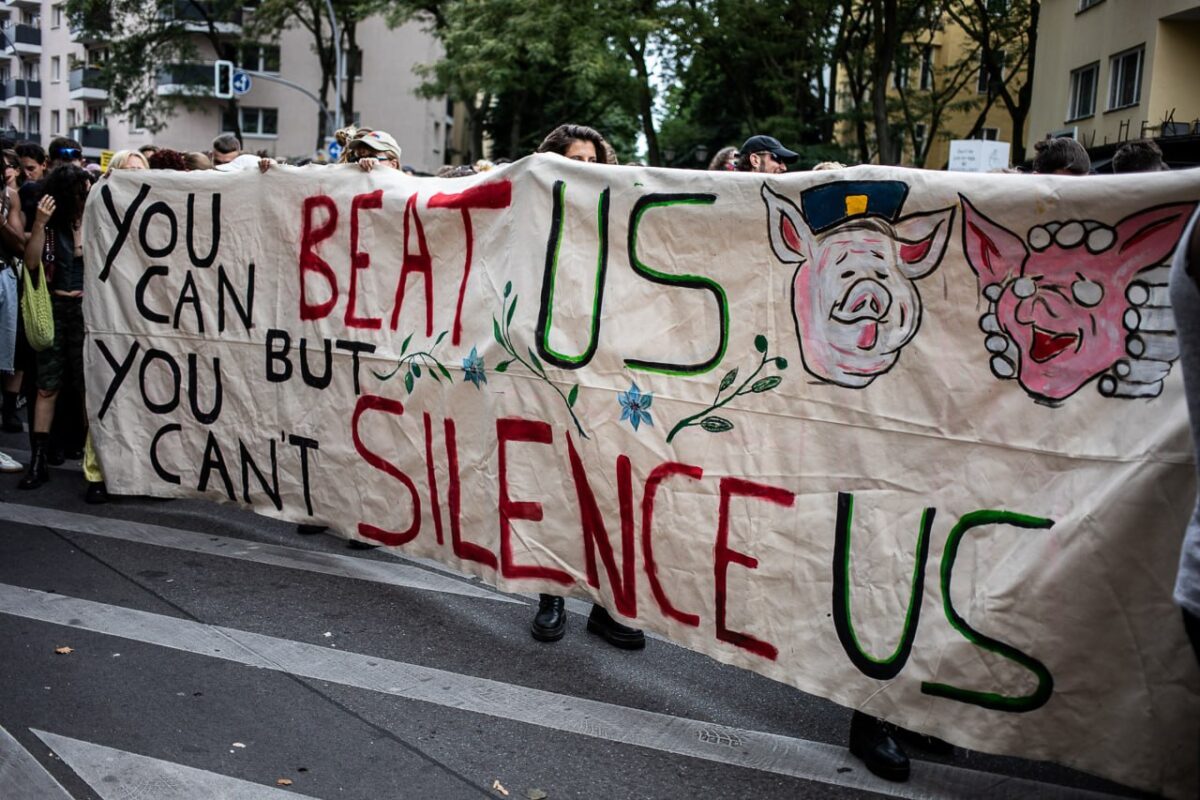Ever since Israel’s genocidal intentions became evident in October 2023, we’ve witnessed successive “roads to Damascus” by various layers of people, politically situated at different, sometimes completely opposite, parts of the political spectrum.
The motivations for these conversions range from sincere critical self-reflection, to facing a more conducive political climate to express criticism, to blatant opportunism, to the fear of public opinion and/or the possibility of being faced with legal consequences of being complicit in the “crime of all crimes”.
The first wave occurred relatively quickly. It was a layer of “soft left” intellectuals, academics, journalists, and others, who in the immediate aftermath of October 7th peddled the narrative that somehow the main issue was not the predictable result of 16 years of incremental genocide of the Gaza Strip by the Israeli state, but the fact that some leftists were “cheering for Hamas”.
This layer quickly uttered the word “genocide”, even as it attempted to impose its own framing on the debate, which censored terms such as “resistance”. In Germany, this takes the form of an increasingly unhealthy obsession with the “German psyche”, as if these issues somehow take precedence over the broader dynamics of state and class formation (both in Germany and Israel), as well as imperialism. The genocidal onslaught was being implicitly placed in the context of a “global far right resurgence”, which is, of course, true to some extent but does not represent the entire picture.
My suspicion is that these theoretical weaknesses partly lie in the reverberating influence of a kind of thinking which oscillates between early 2000s alter-globalisation autonomism and its silence on the realities of inter-state competition on the one hand, and a left reformist instinct of trailing “public opinion” on the other.
The second wave concerns left reformist figureheads and political forces that refused to call this a genocide immediately, such as Bernie Sanders, who until today, quite brazenly, insists on calling this “Netanyahu’s war”, as if somehow any other political force in Israel would act differently.
It also includes parties like Die Linke in Germany. After one year of genocide, Linke leader Ines Schwerdtner was still describing October 7th as an example of “eliminatory antisemitism”, thereby decontextualising it and relativising the Holocaust. Now, and riding the coattails of a global insurgent movement, these forces feel more comfortable in expressing more robust criticisms of Israel, although, as the saying goes, “too little, too late”.
The third and fourth waves are occurring simultaneously. On the one hand, we have celebrities and intellectuals in full awareness of the detrimental effects that continuing silence could have on their social capital (e.g. Piers Morgan). On the other hand, we have Merz, Starmer, Macron, the German Greens, and other cretins, who are now discovering that Israel “has gone too far”.
I don’t agree with the defeatist sentiment that these people realise that the genocide is now over (“one day, everyone will have been against this”) and are now ritualistically saying “sorry”. This amounts to a bizarre underestimation on the proven Palestinian capacity for resistance, as well as a very pessimistic appraisal of the strength of imperialism in the region, of which Israel is a constituent component.
I think that this has more to do with public opinion, reinforced by the actions of movements in different countries, as well as by the real fear of legal consequences for complicity. Not that Merz, Macron and co cared about international law before. But a more transactional foreign policy under Trump makes everything more unpredictable, and these people might be motivated by the need to cling on to some semblance (not necessarily the substance) of a “rules-based order”.
We can make of these successive waves whatever we want – genuine introspection, the power of the movement in the streets, the inability of Israel to act according to the role assigned to it by its backers.
Nevertheless: While all these developments are welcome, those who realised pretty soon what was going to happen, who had studied the dynamics as they developed in the preceding decades, who had placed the issue in a wider regional and global framework of what are in the end pretty mundane capitalist and imperialist interests, should develop or further build their own independent political pole, instead of trailing celebrity intellectuals, “brave journalists”, or deciding that “now is the time to work in X or Y party” “to be more effective”.




